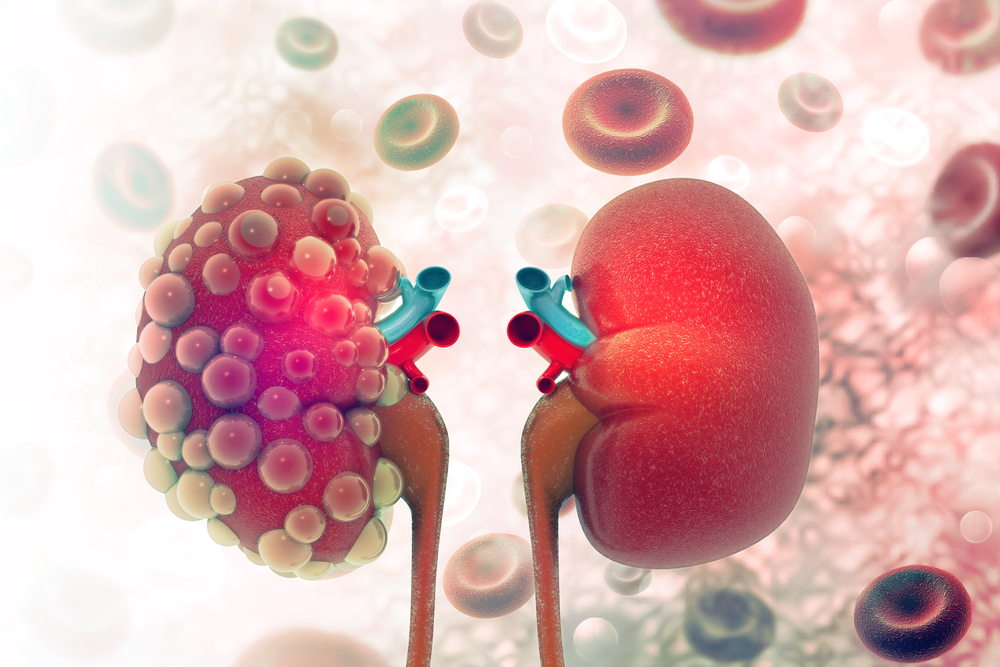
Treating people with advanced metastatic kidney cancer using a combination of the immunotherapy drugs nivolumab (Opdivo) and ipilimumab (Yervoy) significantly increased overall survival versus treatment with sunitinib (Sutent) alone, according to new findings from researchers at Memorial Sloan Kettering Cancer Center (MSK) that were reported today in the New England Journal of Medicine.
The international study, led by MSK medical oncologist and world-renowned kidney cancer expert Robert Motzer, MD, compared the combination of the two immunotherapies against sunitinib alone in people with advanced renal cell carcinoma (RCC) who had not yet received treatment. Researchers found that the combination of the immunotherapies ipilimumab and nivolumab extended overall survival, and objective response rates were significantly higher with the combination than with sunitinib alone.
“We have seen a significant improvement in overall survival,” said Dr. Motzer, lead author and principal investigator of the study. “This immunotherapy combination offers a completely different mechanism of action, and it introduces a new type of therapy in this setting. One earlier trial gave us a hint of potential, but this is the first time we have been able to demonstrate a survival benefit in a first-line therapy for renal cell carcinoma.”
In the randomized phase III trial, a total of 1,096 people who’d had no prior treatment were randomly assigned to treatment at 175 sites in 28 countries. There were 550 people treated with the nivolumab plus ipilimumab combination and 546 treated with sunitinib, the current standard of care. Researchers found a significant difference in overall survival favoring the ipilimumab and nivolumab combination, with an 18-month overall survival rate of 78 percent versus 68 percent with sunitinib alone.
This study was also designed for a formal statistical comparison between the sunitinib group and the combination group in producing objective responses (meaning substantial tumor shrinkage). Those receiving the combination also had a higher objective response. In addition, 9 percent of people in the combination trial had a complete response (with no evidence of the tumor remaining) versus 1 percent of those who received sunitinib alone.
Ipilimumab and nivolumab are part of a class of drugs called immune checkpoint inhibitors, which unleash the immune system to attack cancer. The immune system has several checkpoints in place to avoid an overreaction. Ipilimumab works by blocking the CTLA-4 checkpoint, a molecular brake that stops T cells from becoming fully and persistently activated. Similarly, nivolumab prevents the molecule PD-L1, expressed by tumors, from binding to T cells and deactivating them.
Because immunotherapy drugs work differently than targeted therapies, side effects can be significant.
Implications for People with RCC
Kidney cancer is notoriously difficult to treat. RCC, the most common form of the disease, is often diagnosed when it has already spread to other organs. Until recently, people with RCC had few therapeutic options. For years, oncologists have had very limited choices for how to treat people with metastatic RCC. The targeted therapy sunitinib was approved in 2006, based on studies led by Dr. Motzer at MSK. Since then, it has remained the standard of care as initial treatment for this disease.
More than 330,000 people are diagnosed with RCC every year, and the disease causes more than 140,000 deaths worldwide annually. It’s also particularly aggressive: At the time of diagnosis approximately 30 percent of people have metastatic disease, which means the cancer has already spread to other organs, and about one-third of people whose disease is confined to the kidney will relapse.
“This trial has produced practice-changing results in kidney cancer and represents another important step in the clinical trials program at MSK. We believe the results of this trial will now make this combination the standard of care in advanced metastatic kidney cancer,” said Dr. Motzer.
Filed Under: Drug Discovery



